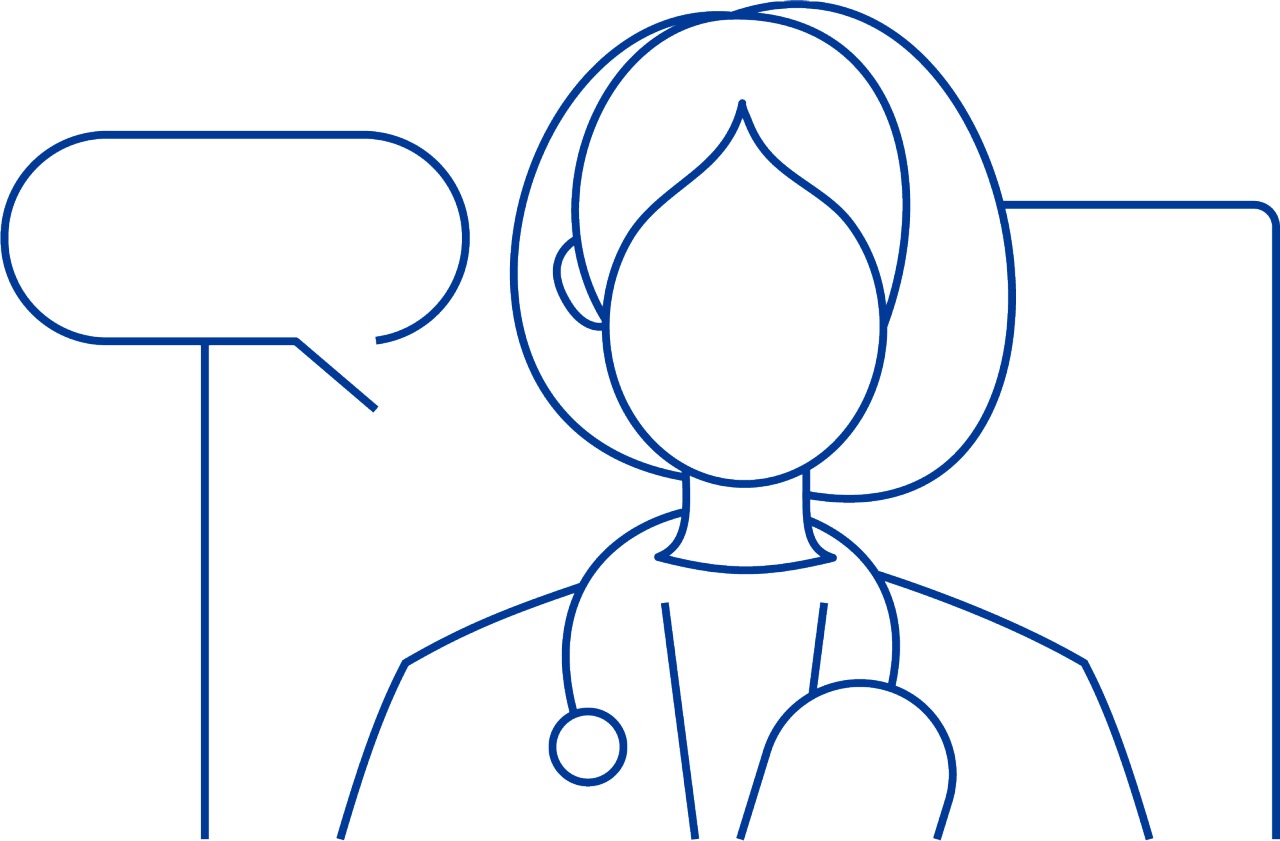A doctor may conduct a blood test to determine if chemical, hormonal, or other bodily changes may be the cause of heart palpitations.
-
- Find Care
-
- Visitor Information
- Find a Location
- Shuttles
- Visitor Policies
-
-
- Our Virtual Care Options
- Virtual Urgent Care
- Virtual Visits for Primary & Specialty Care
- Online Second Opinions
- Participate in Research
-
- Contact us
-
- For Innovators
- Commercialization Guide for Innovators
-
-
- Research News
- Alzheimer's Disease
- Artificial Intelligence
-
- Overview
-
- Overview
- Getting Started
- New to Mass General Brigham
- International Patient Services
- What Is Patient Gateway?
- Planning Your Visit
- Find a Doctor (opens link in new tab)
- Appointments
- Patient Resources
- Health & Wellness
- Flu, COVID-19, & RSV
- Billing & Insurance
- Financial Assistance
- Medicare and MassHealth ACOs
- Participate in Research
- Educational Resources
- Visitor Information
- Find a Location
- Shuttles
- Visitor Policies
- Find Care
-
- Overview
- Our Virtual Care Options
- Virtual Urgent Care
- Virtual Visits for Primary & Specialty Care
- Online Second Opinions
-
- Overview
- Participate in Research
-
- Overview
- About Innovation
- About
- Team
- News
- For Industry
- Venture Capital and Investments
- World Medical Innovation Forum (opens link in new tab)
- Featured Licensing Opportunities
- For Innovators
- Commercialization Guide for Innovators
- Contact us
-
- Overview
- Information for Researchers
- Compliance Office
- Research Cores
- Clinical Trials
- Advisory Services
- Featured Research
- Two Centuries of Breakthroughs
- Advances in Motion (opens link in new tab)
- Brigham on a Mission (opens link in new tab)
- Gene and Cell Therapy Institute
- Research News
- Alzheimer's Disease
- Artificial Intelligence
-
- Overview
-
- Overview
- Residency & fellowship programs
- Brigham and Women's Hospital
- Massachusetts General Hospital
- Mass Eye and Ear
- Newton-Wellesley Hospital
- Salem Hospital
- Integrated Mass General Brigham Programs
- Centers of Expertise
- Global & Community Health
- Health Policy & Management
- Healthcare Quality & Patient Safey
- Medical Education
- For trainees
- Prospective trainees
- Incoming trainees
- Current trainees
- Continuing Professional Development
- Patient Care
- Services and Specialties
- Heart and Vascular
- Conditions & Treatments
- Heart Palpitations
What are heart palpitations?
Heart palpitations are a common occurrence and typically not a cause for worry. Heart palpitations are often characterized as feeling more aware of the heartbeat.
Heart palpitations can feel like the heart is skipping beats or has extra ones. It may feel like the heart is racing and pounding. Some people describe palpitations as feeling like their heart is fluttering or flip-flopping in their chest. Sometimes anxiety can cause it to feel like your heart is beating in your chest, neck, or throat.
What causes heart palpitations?
Heart palpitations could be caused by something you’ve ingested or your emotions. In rare instances, they could be caused by an underlying health issue. Some common causes include:
- Too much caffeine or alcohol
- Strenuous exercise
- Reaction to medication, including over-the-counter and prescription medications
- Taking herbal or nutritional supplements
- Experiencing strong emotions, such as fear, panic, anxiety, and shock
- Lack of sleep
- Nicotine use
- Dehydration
- Hormonal changes, including menstruation, pregnancy, and menopause
- Fever
- Depression
How long do heart palpitations last?
Heart palpitations do not typically last long, lasting for seconds or minutes. Panic attacks can cause palpitations that last several minutes.
Complications of heart palpitations
Heart palpitations rarely cause any complications. However, if you have a history of heart disease and the heart palpitations begin occurring more frequently, you should speak with your doctor. While heart palpitations may not be considered life-threatening, they could indicate a more serious condition.
It’s possible heart palpitations are an indication of arrhythmia, which is an irregular heartbeat that should be monitored by a doctor. Learn more about what your heart rate is telling you and signs you should see a cardiologist.
As a reminder, seek emergency care right away if experiencing symptoms such as:
- Chest pains
- Shortness of breath
- Fainting
- Dizziness
- Unusual or increased sweating
Risk factors for heart palpitations
Certain factors can increase your risk of experiencing heart palpitations, including:
- Stress
- Anxiety
- Taking medications, herbal, or nutritional supplements
- Heart conditions
- Overactive thyroid
In addition, certain people are at higher risk for heart palpitations. These include:
- People with heart disease and/or high cholesterol
- Pregnant persons
- People who are malnourished or have eating disorders
- People who use recreational drugs
Heart palpitations diagnosis
Diagnosing heart palpitations will first involve a physical examination. The doctor will listen to your heartbeat with a stethoscope. The doctor may perform an in-depth physical examination looking for signs of other medical conditions that may cause heart palpitations and ask questions regarding medical history.
Doctors may wish to perform tests to rule out any other complications. Standard diagnostic tools include:
Your doctor will have you exercise to increase your heart rate and blood pressure to examine how your heart performs under physiological stress. This test is used to determine if exercise or physical exertion is the cause of heart palpitations.
If you cannot perform the test physically, medications may be used to simulate exercise.
A doctor may ask the patient to provide a urine sample to see if any chemical substances, such as caffeine or medications, or hormonal changes may be causing or contributing to heart palpitations.
An electrocardiogram, also called an ECG or EKG, monitors and records the electrical activity of the heart. A doctor will place pads called electrodes on a patient’s chest, arms, and legs to conduct this test.
A Holter monitor is a device worn by a patient for 24 to 48 hours to measure and record the heartbeat. A doctor can use this information to determine if there are any irregularities in the heart rhythm when the patient is away from the hospital or clinic.
There are several types of cardiac event recorders, also known as ambulatory ECG/EKG monitors. The event recorder is generally worn for 30 days and monitors the patient’s heartbeat while they are away from the hospital. The patient wears the recorder and presses a button when they feel heart palpitations, and the monitor records the heart’s activity during these episodes.
An echocardiogram is an ultrasound of the heart. There are several types of echocardiograms that can be used to analyze the blood flow through the heart, the function and position of different heart structures, the size and thickness of the heart walls, and so on.
Heart palpitations treatment
Unless the heart palpitations are caused by something more serious, such as a heart condition, no treatment is likely needed. Once the doctor determines the likely causes of heart palpitations, the doctor may advise avoiding the triggers.
The providers at Mass General Brigham are here to help you live a heart-healthy lifestyle. If you have concerns about heart palpitations or other possible heart conditions, call or request an appointment.
How to prevent heart palpitations
Heart palpitations typically go away on their own and are not life-threatening. However, some people find it helpful to prevent them by:
- Identifying triggers, such as emotional, lifestyle, or food choices
- Limiting caffeine or alcohol intake
- Avoiding nicotine products
- Changing medications, including prescription, over-the-counter, or herbal supplements
- Reducing stress levels with activities such as yoga, relaxation techniques, or deep breathing exercises
- Exercising (consult with a doctor before starting an exercise program to identify what exercises are best)
- Sticking to a heart-healthy diet and lifestyle
Living with heart palpitations
Heart palpitations may come and go after eating, exercising, or dealing with anxiety. Others may experience heart palpitations when lying down or throughout the day. It’s also possible to feel a heart beating fast for no reason. Because there are various triggers and a wide variety of causes, it is helpful to identify the triggers and manage them.
Heart palpitations are typically not life-threatening, and people who experience them can lead normal lives.
FAQs
Heart palpitations will generally go away on their own and are not a cause for alarm. However, if you experience other symptoms, such as chest pain, shortness of breath, fainting, or an unusual amount of sweating, seek medical attention. If heart palpitations become more frequent, you should speak to your healthcare provider.
Heart palpitations will typically go away on their own, but you may be able to stop them from occurring by identifying your triggers and eliminating them. Managing stress and anxiety through deep breathing, yoga, or exercise can be helpful. If medications are causing heart palpitations, speak with your doctor about changing them.
It is possible to experience heart palpitations daily. While they may feel worrisome, they are usually harmless and will go away on their own. If there is a change in the pattern or frequency, talk to your doctor about possible triggers and causes.
Feeling heart palpitations when lying down is common. One reason may be because you are less busy, and they become more noticeable. Another reason could be from lying on your left side, which stimulates the vagus nerve. This nerve controls your heart rate, and lying on your side can activate it, causing a rapid heartbeat. It’s harmless and changing positions should stop it.
Your doctor may order an electrocardiogram, or EKG, to measure the electrical activity of your heart. It’s a quick and painless test to measure if your heartbeat is too fast or too slow (called bradycardia).
Heart palpitations may not have a clear cause. However, you may be more likely to experience heart palpitations if you:
- Do strenuous exercise, especially without proper conditioning
- Feel constantly stressed or anxious
- Drink caffeinated beverages, like coffee or energy drinks
- Smoke or vape
- Use recreational drugs
- Have a fever or are feeling ill

